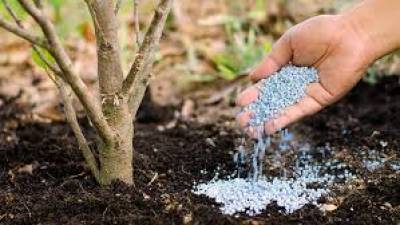NEW DELHI, 6 March 2024: India's agricultural sector plays a pivotal role in the nation's economy and food security, with fertilizers being a vital input driving productivity.
Let's delve into the current state of the fertilizer market in India, exploring production trends, key challenges, and future prospects:
Domestic Production: A Mixed Bag
India boasts a significant domestic fertilizer production capacity, particularly in nitrogenous fertilizers like urea. Here's a snapshot of recent production output in million tonnes:
- Urea (2022-23): 25.08 million tonnes
- DAP (Diammonium Phosphate) (2022-23): 4.22 million tonnes
- SSP (Single Superphosphate) (2022-23): 5.35 million tonnes
- MOP (Muriate of Potash): Limited domestic production
- Complex Fertilizers (2022-23): 8.31 million tonnes
Reliance on Imports: Closing the Gap
Despite robust domestic production, India still relies heavily on fertilizer imports to meet the growing demand for nutrients. Here's why:
- Limited Phosphate and Potassium Resources: India lacks sufficient reserves of phosphate rock and potash, crucial raw materials for producing phosphatic (DAP) and potassic (MOP) fertilizers.
- Global Price Fluctuations: The prices of raw materials and finished fertilizers on the international market significantly impact India's import costs, influencing domestic fertilizer prices.
Government Subsidies: Balancing Affordability and Sustainability
To ensure affordable fertilizer prices for farmers and boost agricultural productivity, the Indian government utilizes subsidies across various fertilizers, particularly urea. While this support is crucial for the sector, concerns exist about overuse and unsustainable practices.
The Future of Fertilizers in India
The outlook for the Indian fertilizer market faces a mix of challenges and opportunities:
- Increasing Demand: India's growing population and rising demand for food will continue to drive the need for increased fertilizer usage.
- Focus on Balanced Fertilization: Promoting the balanced use of NPK fertilizers for optimal soil health and long-term sustainability.
- Innovation in Fertilizers: Development of more efficient, slow-release, and customized fertilizers aligned with soil and crop needs.
- Promoting Organic Alternatives: Encouraging the use of organic fertilizers, biofertilizers, and integrated nutrient management practices to reduce overuse of chemical fertilizers.
Key Players Shaping the Market:
Several large players operate in the Indian fertilizer market, both in manufacturing and imports:
- IFFCO (Indian Farmers Fertiliser Cooperative Limited): A major producer of urea and complex fertilizers.
- Coromandel International: A leading phosphatic fertilizer manufacturer.
- National Fertilizers Limited (NFL): A prominent urea producer.
- Rashtriya Chemicals and Fertilizers Ltd (RCF): Another major producer of fertilizers.
Conclusion:
India's fertilizer market plays a critical role in ensuring the nation's food security. While domestic production has grown significantly, a reliance on imports remains. As India navigates challenges of rising demand and global price fluctuations, focusing on balanced fertilization, fertilizer innovation, and sustainable practices will be crucial to shaping the future of this vital sector.
Sources
- Department of Fertilizers, Government of India
- The Fertiliser Association of India (FAI)
- Fertilizer Industry in India (Statista)
Image credit: plantsforallseasons.com























